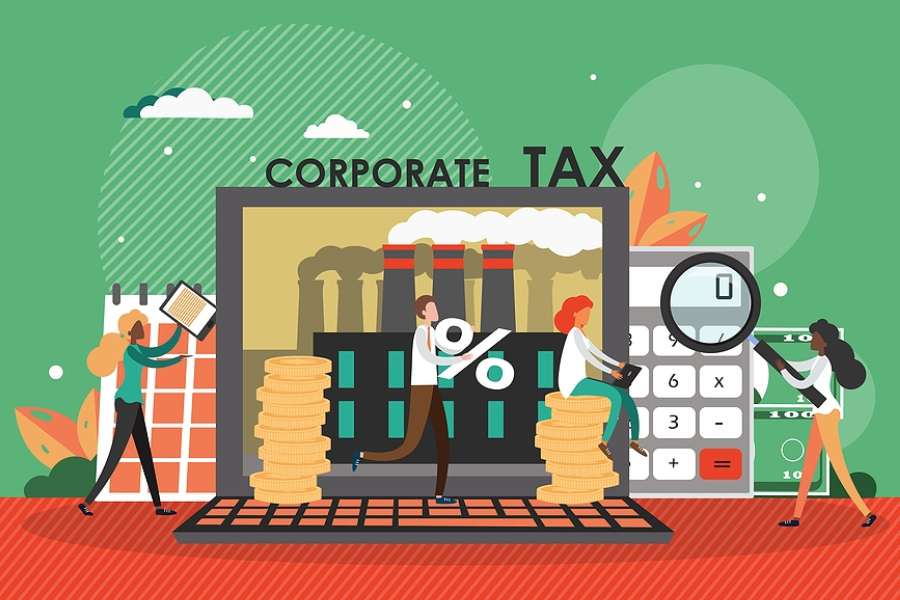 Corporate Taxes: Key Dates and Exemptions to Be Aware Of
Corporate Taxes: Key Dates and Exemptions to Be Aware Of
Navigating tax season can be daunting for many business owners, but understanding the ins and outs of filing taxes is essential for operating a successful business in Singapore. By staying informed and prepared, you can avoid the pitfalls of tax non-compliance and the associated penalties.
To ensure that your company is compliant with all tax obligations, it is crucial to be prepared by getting a head start on your business’ tax return deadline for the year. This will prevent you from becoming flustered when the deadlines draw near. To further ease your tax preparations, enlisting the services of a reputable tax preparation company in Singapore is highly recommended.
In this article, we will discuss some key dates in filing taxes and tax exemptions that you should be aware of as a business owner in Singapore.
Filing of Corporate Income Tax
Singapore has a one-tier corporate tax system, and the tax that a company pays on its chargeable income is considered the ultimate tax. Usually, a corporate entity doing business in Singapore is required to pay three kinds of taxes: corporate income tax (i.e., Form C-S, Form C-S Lite, or Form C), estimated chargeable income (EIC), and goods and services tax (GST).
The form C-S/C-S Lite/C is essentially the tax return of a corporate entity, which details its income. Depending on the type of company, a Form C-S, Form C-S Lite, or Form C should be submitted to IRAS on or before November 30, 2023. The form must be completed by all qualifying businesses.
- Form C-S
Small businesses are allowed by IRAS to have their tax filing simplified by completing Form C-S, which contains around half of what is found in Form C. Nonetheless, this form still ensures that companies declare their eligibility, tax adjustment details, and details from their financial statements, if applicable.
When filing Form C-S, companies must ensure that they are incorporated in Singapore, have a revenue of $5 million or less, and that their income is taxable at a corporate tax percentage of 17%. They should also not claim carry-back of current-year capital losses or allowances.
- Form C-S Lite
The Form C-S Lite is specifically designed for the corporate tax filing of smaller businesses in Singapore. To qualify for the Form C-S Lite corporate tax filing, a company must have an annual income of $200,000 or less and meet all Form C-S criteria. Form C-S Lite is the simplest corporate income tax form, first introduced by IRAS in 2020.
- Form C
Companies with income exceeding the thresholds for Form C-S Lite and Form C-S should complete Form C. This form is for big corporations, and as such, its requirements are vast. Usually, businesses that fill out Form C are required to declare essential tax and financial details like tax computation as well as to submit supporting documents like audited accounts.
Filing of ECI
The ECI is another tax obligation that companies in Singapore need to fulfil and is calculated using an estimate of the business’s taxable income for the fiscal year. The aforementioned taxable income includes the deduction of considerable expenses where authorised.
All companies must file the ECI, irrespective of the estimate. Qualified companies must file such ECI within 3 months from the end of their fiscal year. That being said, the government allows certain exemptions from filing an ECI, such as in the following instances:
- The income of a corporate entity for the accounting year is zero.
- The annual revenue of a corporate entity for the fiscal year is less than $1 million on or before June.
- The annual revenue of a corporate entity for the fiscal year is less than $5 million on or after July.
- Designated unit trusts, real estate investment trusts, foreign universities, and similar entities are exempted from filing taxes.
Filing of GST
The GST has similarities to the value-added tax (VAT) imposed in European countries. Currently, these taxes are levied at a 8% tax rate on the majority of domestic goods and services. Because only specific goods and services are taxed, not all companies are mandated to file for the GST. If your company is qualified, you must file for GST every quarter instead of just once a year. This means that eligible companies should file for GST four times each year. Penalties will be imposed for taxes filed late.
To help companies avoid penalties, IRAS offer a GIRO plan, which ensures that GST payments are automatically deducted. If your business is utilising this strategy, it is necessary that you have adequate money in your account before the date of payment deduction. A business that cannot meet its GST tax obligation may apply for an extension. However, such an extension must be based on a concrete reason, and its approval is subject to the IRAS’ discretion.
Corporate Income Tax Rates and General Tax Exemptions
Over the years, Singapore’s income tax rates have been consistently decreasing in order to make the country an enticing destination for investment. At present, the headline rate of corporate tax in Singapore is at 17%, a steep decline from 26% from 1997 to 2000. However, Singapore’s headline corporate tax rate is not always an accurate reflection of its effective corporate tax rate. This is because the effective corporate tax rate is typically lower due to depreciation rules, tax incentives, tax exemptions, and other factors.
Generally, once tax exemptions are applied to the taxable income of small and medium-sized enterprises, the effective corporate tax rate becomes substantially lowered. Beginning in 2022, newly incorporated businesses have the following tax exemptions for the first 3 consecutive assessment years:
- 75% exemption on the first $100,000 of normal chargeable income
Newly incorporated companies will not be required to pay 75% of the corporate income tax rate on the first $100,000 of their taxable income for the first 3 assessment years if they satisfy these conditions:
- They are a tax resident in Singapore.
- They are incorporated in Singapore.
- They have a number of shareholders not exceeding 20, of which at least one is an individual shareholder with 10% of shares at a minimum.
- Extra 50% tax exemption on a maximum of $100,000 of taxable income
Newly incorporated businesses may also enjoy an extra partial exemption of around 8.5% tax rate on their taxable income up to $100,000 annually. However, taxable income beyond $100,000 will incur the ordinary 17% headline corporate tax rate.
Conclusion
Prioritising the filing of corporate taxes is of utmost importance for businesses in Singapore to steer clear of penalties resulting from non-compliance or delayed compliance. Therefore, staying well-informed about the filing deadlines for corporate taxes and exploring potential tax exemptions your company may be eligible for are essential aspects to consider.
To enhance your business’ preparation for the tax season, consider engaging the tax preparation services offered by Counto. Counto is a reputable provider of tax and accounting services for small businesses and large-scale enterprises in Singapore. Our tax preparation services can assist you in ensuring that your corporate taxes are paid with precision and punctuality.
Aside from tax preparation, we offer many other excellent corporate services, including accounting services, bookkeeping services, company incorporation, secretarial services, and more. To find out how Counto can assist your business in various areas, we invite you to visit our website or reach out to us via WhatsApp at (+65) 3159 4255 to book an appointment. Whatever your corporate concerns are, we are more than willing to lend you a helping hand.







